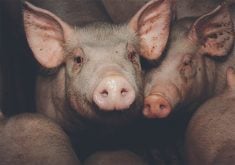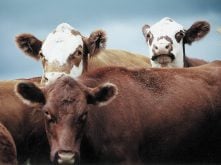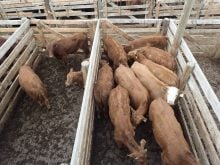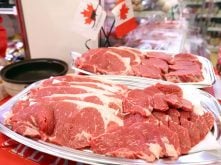LETHBRIDGE, Alta. – There’s plenty of sampling and lots of lip smacking going on when the neighbors stop by John Schussler’s berry farm to buy jam.
“Take this one. It’s on the house,” Schussler tells a neighbor as he savors another spoonful of homemade jam made from six different fruits.
“I’ll call your wife to see if the jam made it home,” he jokes.
As a one-man operation, Schussler can be found talking on his cordless phone to buyers or making fruit leather in the kitchen of his new fruit processing building.
Read Also
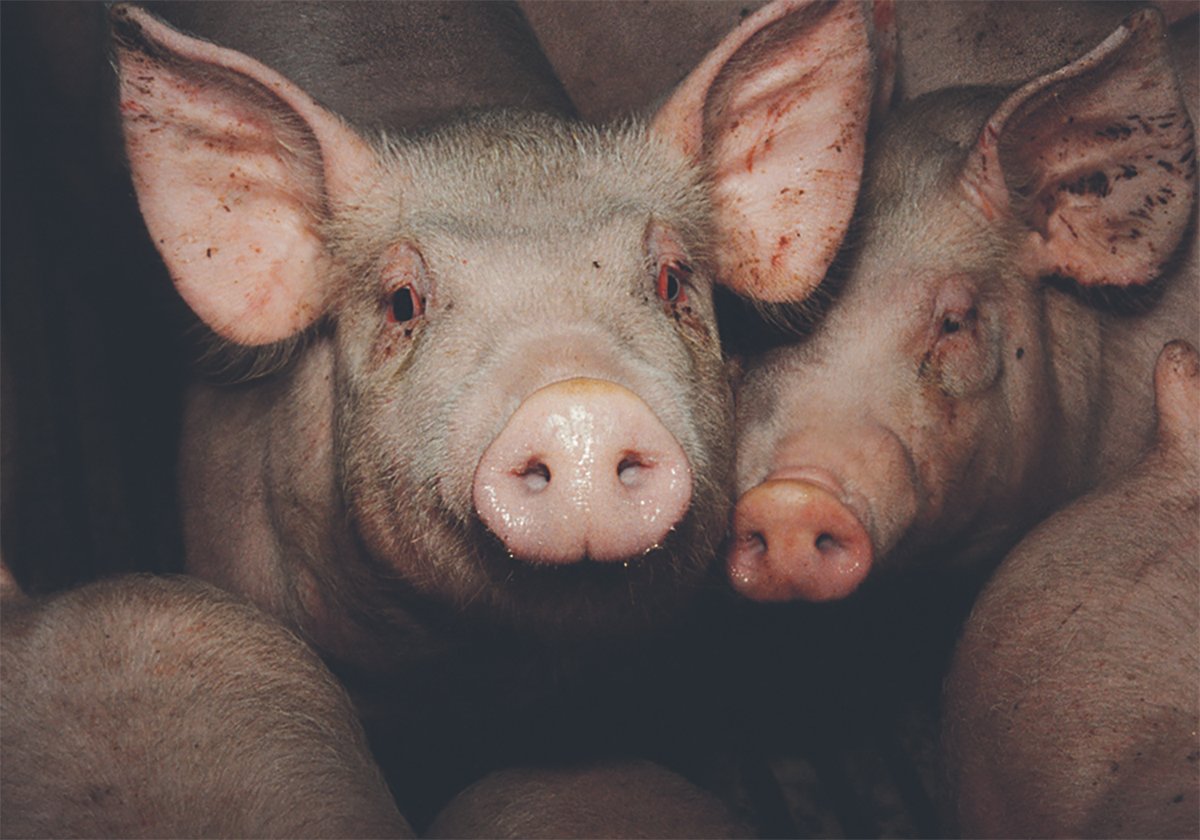
The Western Producer Livestock Report – October 30, 2025
Western Producer Livestock Report for October 30, 2025. See U.S. & Canadian hog prices, Canadian bison & lamb market data and sales insights.
One of the only saskatoon processors in Western Canada, John has big plans for his Lethbridge-area farm.
He makes and sells berry jams, syrups, juice and pie fillings to some of the West’s premier hotels and has started shipping product to Europe.
“It’s a high-end product, so we sell it to high-end hotels,” he said.
He has banked everything on business success. So intent is he on achieving perfection that he does everything from cooking to marketing.
“When you’re starting out, if you want it done right, you have to do it yourself,” he said as he placed another tray of fruit leather in his bakery oven to cook overnight.
He built the farm from scratch starting in 1987. His original plan was to be a dairy farmer, but changing world politics and trade agreements convinced him to hitch his wagon to another horse. He sold the cows and the quota and took a leap of faith into the fruit business.
Bridge Berry Farms and its processing division, the Southern Alberta Fruit Processing Centre, were born when he was forced to find a market for the fruit growing on his shelterbelt of 1,000 saskatoon bushes.
Now he’s buying other growers’ fruit, including saskatoons, chokecherries, black currants, raspberries and strawberries.
Learn from mistakes
Learning how to make jams that preserve the saskatoons’ exotic flavor took two years of tasting. Once he learned a few cooking tricks, he was able to move to other fruits like black currants and rhubarb.
All his products are natural with no preservatives. He learned that vinegar stabilizes the jam mixture better than citric acid or lemon juice.
He also learned quickly that juice and syrup lasts longer in glass bottles than in plastic bottles.
Call on know-how
Schussler used to be a ticketed deep pressure welder and heavy duty mechanic, skills that have saved him thousands of dollars because he is often able to build or invent his own equipment.
One of his inventions is a self-contained seedling tree planter. It is capable of laying down drip line irrigation, plastic mulch, trees and rooting starter in one pass. Ordinarily, it takes seven people up to three weeks to plant a five-acre orchard. Schussler’s implement does the work in one day with five people.
He farms 17 acres of saskatoons and 10 acres of black currants, chokecherries and rhubarb. He intends to plant more of everything next year. The berries are frozen within two hours of being picked because the flavor breaks down quickly.
During busy times like tree planting, harvesting or processing, he hires local students to work in his federally inspected plant.
He plans to continue upgrading his plant to speed processing. He said his processing facility is already worth $1 million. Schussler has invested in a steam kettle to make jam, reconditioned a filling machine to handle syrups and juices, and installed a walk-in freezer.
Nothing goes to waste. For example, rhubarb leaves are cooked into a juice to make an insecticide. Originality makes marketing easier, he said.
“Nobody else is making it. We’re not a ‘me too’ company.”
Schussler started selling at farmers’ markets where the money was good, but he learned he could do even better with a more organized marketing plan. Hotels like his product with its maple leaf on the lids because tourists find the saskatoons and other western fruits exotic.
While he’s breaking even right now, he hopes to make a good living within a couple of years.
His plans mean the warehouse and kitchen will soon be too small and expansion is down the road.
Does he regret leaving traditional farming behind? His firm answer: “No.”



